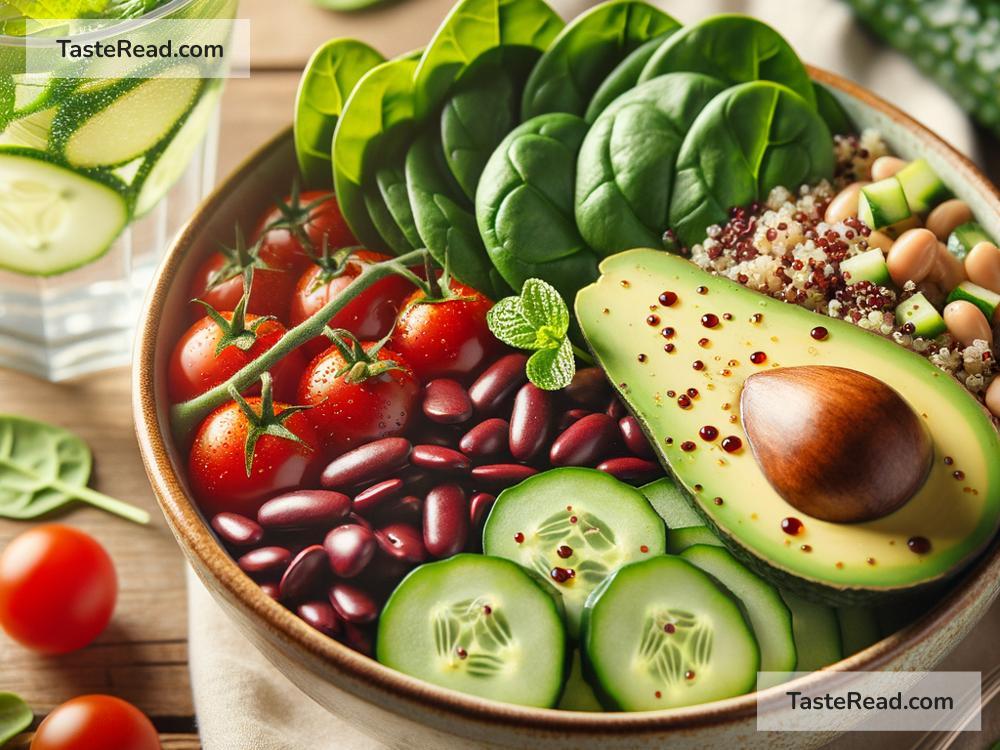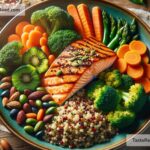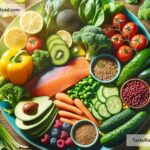The Benefits of a Balanced Diet for Kidney Health: Supporting Renal Function
Your kidneys might be small, but they play a big role in keeping your body healthy. These vital organs work like filters, removing waste, toxins, and extra fluid from your blood. They also help balance minerals, produce hormones, and maintain overall health. To keep your kidneys running smoothly, one of the best things you can do is eat a balanced diet. In this blog, we’ll explain how a healthy diet supports kidney function, the benefits it offers, and some simple tips to protect your kidneys.
Why Kidney Health Matters
Your kidneys are part of your body’s waste management system. Every day, they filter around 50 gallons of blood to remove harmful substances and excess water. When the kidneys aren’t working properly, waste can build up in your body, causing health problems like high blood pressure, swelling, and fatigue. In severe cases, kidney failure can occur, requiring dialysis or a transplant.
By eating a balanced diet, you can reduce the risk of kidney problems and help your kidneys stay strong. A healthy eating routine supports their ability to filter blood effectively, regulating your body’s fluid balance and keeping your heart healthy—all while preventing long-term damage.
Benefits of a Balanced Diet for Kidney Health
A balanced diet is not just about eating the “right” foods; it’s about creating a lifestyle that keeps your whole body healthy. When it comes to kidney health, here are several benefits of eating well:
1. Reduced Blood Pressure and Diabetes Risks
High blood pressure and diabetes are two of the leading causes of kidney disease. Eating a balanced diet with nutritious foods like fruits, vegetables, whole grains, and lean proteins can help prevent these conditions. For example, cutting back on processed foods and sugary drinks lowers your risk of diabetes, while reducing sodium intake helps manage blood pressure.
2. Maintaining a Healthy Weight
Carrying extra weight puts stress on your kidneys because they have to work harder to filter waste. A balanced diet can help you maintain a healthy weight, lowering your risk of kidney problems. Focus on eating portion-controlled meals, avoiding fried or fatty foods, and incorporating physical activity into your day.
3. Controlling Acid and Toxin Levels
Your kidneys filter out acids and toxins from your body, but too much of these substances can overwhelm them over time. Foods high in processed sugars, sodium, and unhealthy fats can increase toxic buildup. A balanced diet filled with nutrient-rich foods like leafy greens, berries, and whole grains helps support kidney detoxification and keeps your filtration system strong.
4. Protecting Against Excess Protein
While protein is essential for building muscles and repairing tissues, eating too much protein (especially from animal sources) can strain your kidneys. Moderation is key—especially if you already have kidney issues. A balanced diet ensures an appropriate amount of protein intake, reducing your kidneys’ workload.
5. Improving Hydration
Your kidneys depend on water to flush out waste and toxins from the body. Dehydration can lead to kidney stones or even kidney failure over time. Drinking plenty of water, along with eating water-rich foods like cucumbers or watermelon, keeps your kidneys adequately hydrated and functioning properly.
Foods That Promote Kidney Health
The good news is that many delicious and nutritious foods can help keep your kidneys healthy. Here are some examples:
- Leafy Greens: Spinach, kale, and other greens are rich in vitamins and minerals that protect your kidneys.
- Berries: Blueberries, strawberries, and raspberries are packed with antioxidants that fight inflammation and reduce kidney damage.
- Whole Grains: Foods like brown rice, quinoa, and whole-wheat bread support healthy digestion and prevent blood sugar spikes.
- Fish: Fatty fish like salmon and trout contain omega-3 fatty acids, which reduce inflammation and support kidney health.
- Low-Sodium Options: Choose foods labeled “low sodium” and cook with herbs instead of salt to reduce strain on your kidneys.
Foods to Limit or Avoid
Some foods may be harder on your kidneys, especially if you’re at risk for kidney disease. Try to cut back on these:
- High-Sodium Foods: Chips, salted nuts, canned soups, and fast food can raise blood pressure.
- Processed Meats: Bacon, sausage, and deli meats are often high in sodium and preservatives.
- Sugary Snacks: Cookies, cakes, and soda increase your risk of diabetes.
- Excess Protein: Avoid eating large servings of red meat and consider plant-based proteins instead.
Simple Tips for Kidney-Friendly Eating
You don’t need to overhaul your entire diet overnight. Start small and gradually build healthy habits. Here are some easy tips:
- Drink More Water: Carry a water bottle to stay hydrated throughout the day.
- Watch Your Portions: Use smaller plates and bowls to control serving sizes.
- Cook at Home: Prepare home-cooked meals to limit salt, sugar, and unhealthy fats.
- Read Labels: Pay attention to nutrition information and choose low-sodium options.
- Snack Wisely: Replace chips or cookies with nuts, fruits, or veggie sticks.
Final Thoughts
Your kidneys work hard every day, so it’s important to give them the support they need. A balanced diet not only protects your kidneys but also improves your overall health and reduces your risk of serious diseases. By choosing nutritious foods, drinking plenty of water, and avoiding harmful ingredients, you can keep your kidneys strong for years to come.
Remember, small changes can make a big difference. Start today by making mindful food choices and giving your kidneys the care they deserve!


